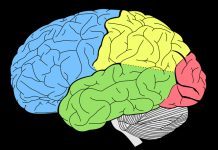Today, stress is everywhere. Children at school are under pressure to perform well and score high grades. Adults need to finish their duties on time. So, almost all of us feel stressed or anxious at some time or the other. But the amount of anxiety experienced varies from one person to another. However, if a person suffers from chronic or long-term anxiety, it is something to be concerned about. If adults under 65 suffer from anxiety, they must be treated the right way. Anxiety in adults can lead to more complicated health issues, such as depression, stroke, etc. These are the reasons why all adults under 65 need anxiety screening.
In this blog, let’s take a closer look at anxiety screening for adults under 65.
Mental Health
Mental health and physical health are inseparable. If one is affected, the other is also impacted. Sometimes, people suffer from mental health issues partly because of hereditary reasons. The environment in which a person is raised also contributes to their mental well-being. If an individual has had a traumatic childhood, there are chances that they develop a mental disorder in their later years. The food people eat, the quantity and quality of their sleep, the medicines they take, the friends with whom they hang out, and several other factors contribute to a person’s mental well-being.
Mental health is no more a subject of taboo. If a person suffers from any mental health problem like anxiety, it’s recommended that they get professional help as quickly as possible.
What Is Anxiety Screening?
When a doctor performs an anxiety screening on you, it involves a series of procedures. They will check you for physical conditions, such as hypothyroidism, which can lead to anxiety. They will give you some questionnaires, which you need to fill up. These will help the doctor rate your anxiety levels. They may question you about the medications you might be taking for other health issues.
Although there are various online anxiety screening tools available, it would be best to get a screening done by your doctor in person. This usually helps in a more accurate diagnosis. One of the commonly used anxiety screening questionnaires is the GAD-7 or Generalized Anxiety Disorder-7. As the name indicates, it is a 7-item anxiety scale. And, GAD is one of the most commonly found mental disorders. There are also other screening tools, such as the Hamilton Rating Scale for Anxiety, and the Personal Health Questionnaire (PHQ-9).
Screening Benefits
There are several anxiety screening benefits for adults under 65. Based on the results of the screening, they’ll know if they have an anxiety disorder or not. In other words, they get a proper diagnosis. However, the anxiety screening tool alone cannot be used to diagnose a mental condition. The physical tests and doctor’s examination together help in determining the correct diagnosis. If the doctor confirms that the patient suffers from an anxiety disorder, they will prescribe the appropriate medication, therapy, or both.
Early detection helps in timely treatment plans, which assist in faster recovery. Detection at the early stages of a disorder is crucial because timely treatment can bring down suicidal thoughts, which are found in some people with anxiety disorders.
Symptoms of Anxiety Disorders
You may see the following symptoms in patients with anxiety disorders:
- They may get irritated easily.
- They may blow things out of proportion.
- You may find them restless. It can be severe to the extent that they cannot sit or stay still even for a few minutes.
- They might get agitated frequently.
- Daily routines can be daunting for them.
Healthcare Guidelines
If a loved one or any other adult in your family is diagnosed with an anxiety disorder, they must start their treatment immediately. Apart from medication, therapy might also be required. Cognitive Behavioral Therapy (CBT) is a psychological treatment that is effective in combating anxiety disorders and depression. It has also proved effective in treating eating disorders, marital issues, and even severe mental illnesses. But ensure that the person regularly takes medication and attends the therapies without fail.
Patience and perseverance are of great importance when it comes to mental issues because they never vanish like a headache within a few hours. Also, kindness and caring for the patient can work wonders in their speedy recovery. A good support system can help them relax and cooperate in their treatment sessions.


















